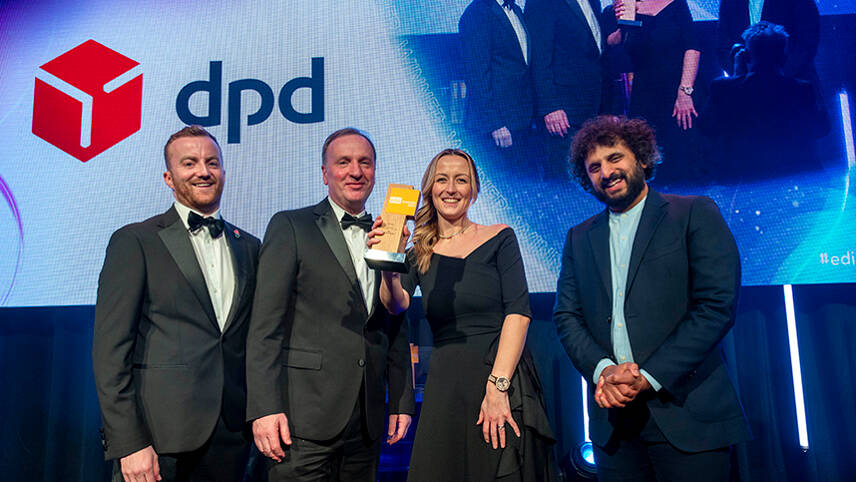This premium content is exclusive to edie Members.
To find out more about edie Membership, please click below.
If you are an existing member, login here

At a glance:
Who: DPD
What: Autonomous robot deliveries
When: 2022 onward
Where: Various UK cities
Why: To cut carbon emissions from deliveries
The challenge
Delivery firm DPD is on a mission to reach net-zero emissions by 2040, but last-mile deliveries in congested cities are not only a source of emissions, but an area where customers could be let down by large vans getting stuck in traffic. If net-zero emissions are to be realised, DPD will need to introduce a solution that doesn’t impact customer satisfaction.
The solution
DPD worked with robotics and last-mile delivery specialist Cartken to develop autonomous delivery robots to champion more sustainable business practices. The robots are scalable, take excess traffic off the roads, are less expensive per stop than a regular driver/van, and are environmentally friendly.
Cartken’s level 4 autonomy and leading micro-AV technology platform provides safe last-mile delivery solutions that enable full autonomy with only cameras.
The robots notify DPD parcel recipients of the delivery in advance, and once they confirm they are at home, the robot is dispatched. They can track the robot’s progress on a map, before using a PIN code to open the secure compartment and access their parcel.
The robots can deliver to residential areas within a one-mile radius. A significant part of rolling out robots has seen DPD work closely with local authorities to establish the most efficient and safe routes for the robots to navigate. Significant regulatory preparation and planning were required before installation commenced.
DPD rolled it out in Milton Keynes in July 2022 and is expanding the solution to 10 new towns and cities over 12 months. DPD is now in talks with 41 local authorities about potential expansion.
The results
DPD claims it is the first UK parcel delivery firm to turn to such a solution and more than 3,000 robot deliveries have been made.
For each delivery, a robot produces 125 times less CO2 than a delivery van. Additionally, there is 32 times less CO2 emitted during robot production compared to ICE/EV car production. During a single robot delivery, 125 times less CO2 is produced than if it had happened with a delivery van.
These carbon savings, combined with the savings during construction mentioned in the Installation section, equate to nearly 1000 kg of CO2 saved in total.
DPD notes that five robots at full capacity making deliveries five days a week will equate to one van being taken off the road. There are also cost savings associated with the innovation, with the cost per delivery stop for a robot currently 15% lower than a traditional driver and van.
The judges said:
“This is an exciting and genuine innovation to utilise AI robots in a trial of localised deliveries which, given the rise of online, will only increase. The entry stresses the positives but also acknowledges that manufacturing is not impact free. We look forward to seeing how this will achieve the scalability required.”
© Faversham House Ltd 2024 edie news articles may be copied or forwarded for individual use only. No other reproduction or distribution is permitted without prior written consent.

